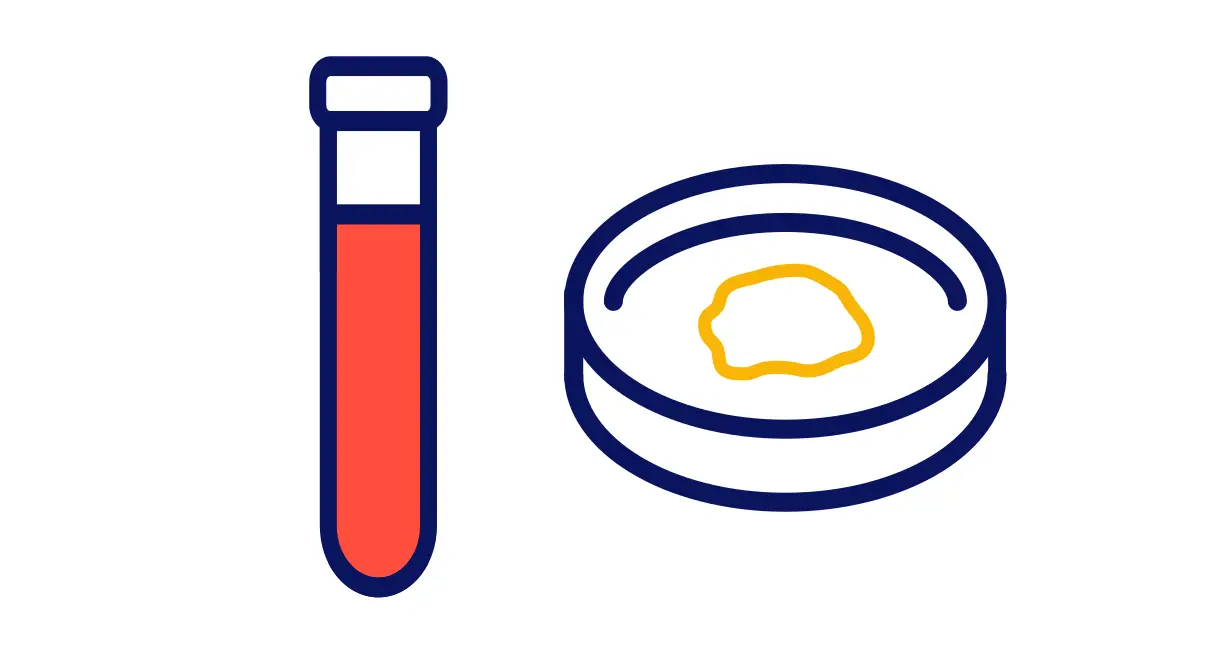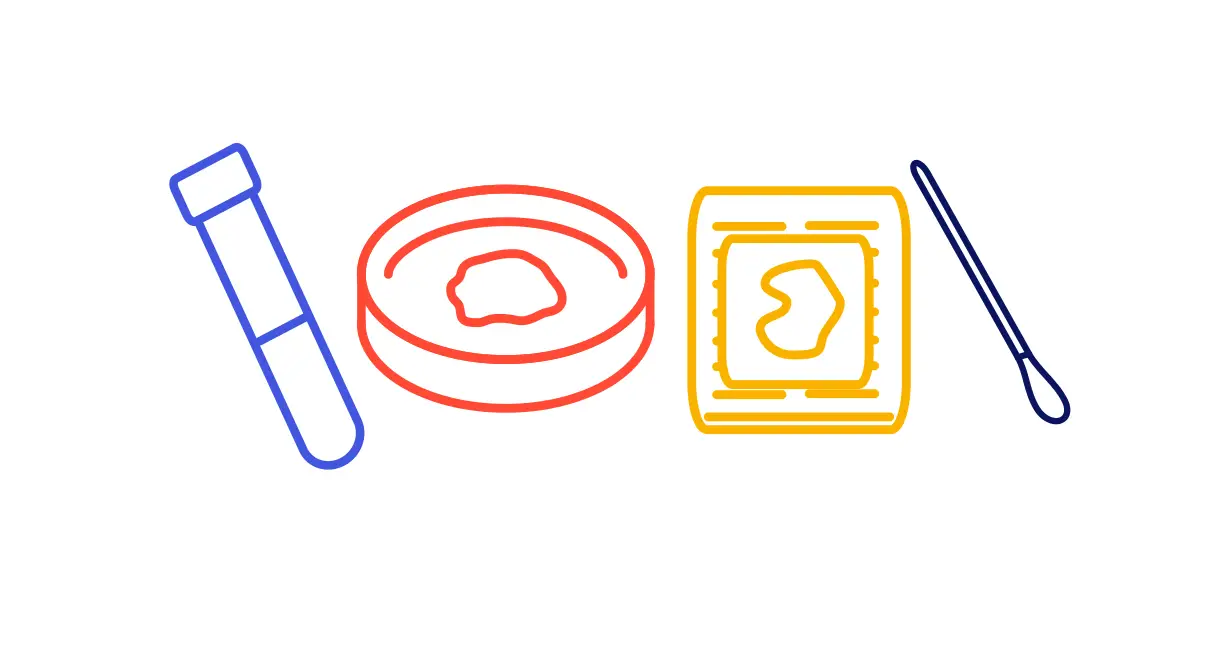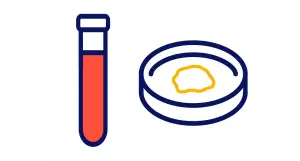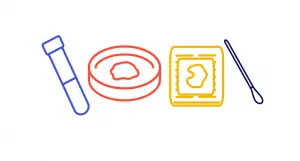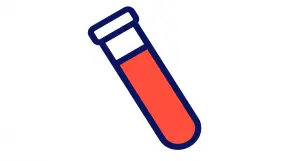Whether you work in life science research at a university, a CRO, a biotech company or a pharmaceutical company, chances are you need human biological samples in order to perform your work. If you need to source human samples for research, there are three main routes to take: work directly with a clinician, obtain samples from a university/hospital/charity biobank, or obtain samples from a commercial biospecimen provider. In this article we will describe each of these methods and discuss some of the pros and cons of each method. We’ll also mention how SampleSmart can help if you need human samples for research.
1. Work Directly with a Clinician
In this route to acquiring human biological samples for research, the scientists collaborate with a clinician working in their specific field of interest. For example, if the researcher requires samples from subjects with ovarian cancer, they will likely work with a gynecologic oncologist, who regularly sees patients with this type of disease. In many cases, hospitals will make participation/collaboration in research studies a part of the mandate for the clinicians that work there. This means that the clinicians have an obligation to contribute to clinical trials and research studies. Helping to facilitate these studies supports the advancement of scientific research, which will likely ultimately benefit future patients.
This method of acquiring biospecimens is very common in academic research, due to the low cost of acquiring the samples.
Pros
Minimal/Low Cost – Generally only consumable costs or minimal overhead costs are required.
Sample Traceability – The researcher knows exactly where/how the samples are being collected, and they have direct access to the clinician collecting the samples.
Cons
Paperwork – The onus is generally on the researcher to prepare the collection protocol and obtain the required ethical approval for the study.
Finding Clinicians – It can be very difficult to find a clinician who is willing to participate in your research study, as they are doing this on a voluntary basis.
2. University / Hospital / Charity Biobank
In this method, the researcher obtains human samples from a biobank associated with a university, hospital, or charity. The concept of biobanks was developed to help researchers obtain biospecimens more easily. The biobanks generally have direct access to clinicians willing to contribute to research. Depending on the biobank, they can source fresh biospecimens and/or they collect and archive samples that are ethically approved for research use. In general, the mission of these biobanks is to facilitate the advancement of science and contribute to the development of new disease-specific diagnostics and therapies.
Pros
Low costs – In general, these types of biobanks (university/hospital/charity) will have lower costs because many operate as non-profit organizations. As a result, the cost of the sample reflects the minimum needed to cover the overhead costs of the biobank’s operations.
Traceability – Often when obtaining samples from these types of biobanks, you are only one step removed from the clinician. In general, these types of organizations tend to work within very strict ethics and compliance guidelines.
Access to Niche Samples – There are many disease-specific biobanks which focus entirely on obtaining specimens from subjects with that specific disease.
Cons
Slow – In some cases, service and response times can be slow. This may be attributed to the non-profit nature of these organizations, which may be understaffed or underfunded.
Paperwork – There can be a considerable amount of paperwork and lengthy ethical review processes in order to obtain samples.
3. Commercial Biospecimen Provider / Commercial Biobank
With this approach, the researcher obtains biospecimens from a company whose primary role is to supply human biological samples for use in research. These companies make connections with hospitals and clinicians, and take care of all of the ethical approval and compliance matters. The companies provide the service of sourcing biospecimens for the purpose of making a profit. As a result, the costs to obtain samples with this method are typically higher. Life science companies typically source samples via this route.
Pros
Fast Access to Samples – If a researcher is looking for archived samples, these can be shipped within a matter of days from ordering. For fresh samples, generally the companies already have access to the patients and the ethical approval is in place, so the samples can be collected and shipped quickly after ordering.
Less Paperwork – Depending on the biospecimen company, there can be very minimal paperwork required to obtain the samples. This is because the ethical approvals are already in place and verified.
Confidentiality – In many cases, the researcher can disclose minimal details of the use of the samples. This can be very important for life science companies where they don’t want to disclose proprietary information during the R&D stage.
Cons
Higher Costs – Commercial biospecimen companies have to cover their operating costs and add a margin to make a profit.
Can be Low Sample Traceability – Depending on the company, you may only be provided with the country where the samples originated.
How We Source Human Samples for Research at SampleSmart
SampleSmart is a biospecimen procurement company. We source biospecimens for life science researchers to use in their R&D studies. We operate using a broker-based model where we work with a worldwide network of biospecimen providers, ranging from direct partnerships with clinicians to academic and hospital biobanks to commercial biospecimen providers. This allows us to source samples across all disease areas (including oncology, cardiology, neurology, immunology, respiratory, infectious diseases, orphan diseases…) and all biospecimen types (including FFPE tissue blocks, slides, fresh/frozen tissue, fresh/frozen blood, serum, plasma, isolated cells, CSF, bone marrow aspirate, swabs, DNA, RNA, protein lysates…).
Check out our How We Work page to see how easy it can be to source biological samples with SampleSmart. Also see our article on the advantages of outsourcing biospecimen procurement, where we outline the benefits of using a specialist procurement company like SampleSmart.

